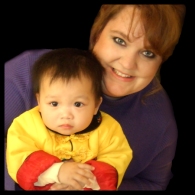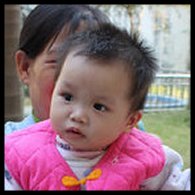I think this is a topic that is very important for all of us to explore. I feel our agencies are so busy with paperchasing, referrals and in China services that they don't focus on some of the aftermath of adoption. I am not judging them, I just think it's important that we take this into our own hands. It will only benefit us.
I did lots of research on the topic and wanted to post a sort of outline to illustrate the Symptoms, Reasons, and things to help anyone that has PAD. Obviously, I am not a doctor so never substitute something I've posted over your doctor's recommendation. This is just a guideline to help educate us on PAD.
I have also saved this in pdf form. Download HERE!
SYMPTOMS
Anxious
Concentration (Difficulty—unable to make decisions)
Confused
Depressed
Energy (loss of)
Fatigue
Frustrated
Guilt (Excessive or inappropriate)
Hopelessness
Inadequacy (feeling)
Indecisiveness (nearly every day)
Irritability
Loss of enjoyment in things
Overwhelmed
Panic
Powerlessness
Recurring thoughts about death or suicide
Sleep (Difficulty)
Sleep (increased need for)
Social (Loss of interest in being around other people)
Tears (Always on the verge)
Weight gain (Significant)
Weight loss (Significant)
Worthlessness
WHY AM I FEELING THIS WAY
Adapting to a drastic change in lifestyle and finances
Adjusting priorities in the marriage
Completion of one of life's biggest goals
Coping with the demands of sleepless nights and hectic schedules
Financial worries
General stress of the adoption process and parenting
Giving up or putting a career on hold
Hard work meeting an adopted baby's special needs
Juggling family needs
Physical and emotional strain of not being prepared for a new child
Physical exhaustion
Some adoptive parents share the birth mothers grief
Unresolved feelings of infertility
WHAT I NEED TO DO TO SURVIVE PAD
ACKNOWLEDGE that this condition does exist.
ACCEPT the fact that risks are a real part of most adoptions.
EXPECT surprises, frustrations and setbacks.
EXPECT the unexpected.
GIVE yourself and your family adequate private nesting time.
TAKE as much time off from work as you possibly can.
KEEP a positive attitude.
KNOW that attachment and bonding are a slow process.
EXERCISE will help even if it’s just a short walk, get out.
REST as much as possible.
JOIN an adoption support group.
LEARN to be patient.
PLAY as much as you can with child, it helps lower frustration levels.
PROVIDE some private time just for yourself.
RECOGNIZE that PAD is common.
RECOGNIZE that your feelings are valid.
TAKE as many parenting classes as you can.
UNDERSTAND where your child is emotionally.
DON’T be afraid to ask for help.
DON’T be afraid to call your doctor or social worker.
DON’T remove yourself from your friends and family, have them help you.
DON’T expect to be super mom
Diagnosing and Treating PAD
Medications are not usually the main form of treatment for PAD. Most parents find that working threw their feelings with a social worker or therapist is the best treatment.
Recommended Readings
Post Adoption Depressions Syndrome by Judy Bond; Roots and Wings, Spring 1995, www.adopting.org/pads.html
Baby Shock by Jean MacLeod; Adoptive Families, Sept/October 2001
Post Adoption Depression: The Unacknowledged Hazard, http://www.eeadopt.org/home/services/research/pad_survey/index. html
REFERENCES
http://www.adopting.org/pads.html
http://www.babycenter.com/refcap/baby/adoption/1374199.html
http://www.bellaonline.com/articles/art385.asp
http://www.adoptionarticlesdirectory.com/Article/Post-Adoption-Depression---The-Unacknowledged-Hazard/53http://www.iparentingadoption.com/articles/2322.php






























































1 comment:
One of the books I read was all about this. It's called Post Adoption Blues. It was great, very sobering, and I'm glad to have read it.
Kimi
Post a Comment